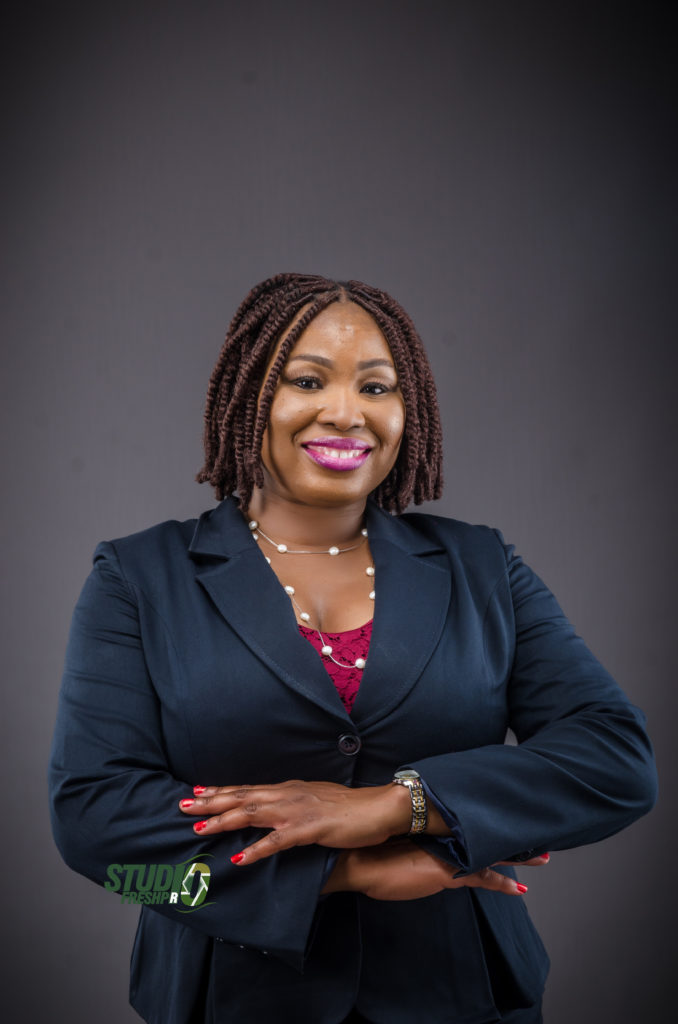Chief Executive Officer, Food Basket Foundation International (FBFI)
My work in nutrition
My father, late Professor Isaac Olaolu Akinyele, was the founding Chairman of the Nigerian CSA, the Civil Society Scaling Up Nutrition in Nigeria (CS-SUNN) when it was unofficially established in 2013. Unfortunately, he died shortly after that in February 2014.
After I returned to Nigeria to work with the Food Basket Foundation International (FBFI), one of the founding organizations of the Alliance, I became part of the Steering Committee of CS-SUNN, as the sub-Committee Chair on Capacity Building from 2016-2020. As part of CS-SUNN, I participated in the SUN Learning Route in Rwanda, contributed to policy and advocacy efforts, and I have developed and facilitated a number of training on pertinent nutrition issues for the Alliance.
I have always been interested in helping people and in nutrition, with a focus on how important nutrients are for optimizing health, particularly since I grew up around it. I remember when my dad was trying to emphasize the importance of eating my vegetables, he pointed out that as a nutritionist, he could not have his child deficient in micronutrients.
Although I grew up around nutrition and constantly read articles pertaining to micronutrients in my young adult years, my interest in working in nutrition started when I wanted to support my dad’s work at Food Basket Foundation International (FBFI).
FBFI, which started March 10, 1989, was the first indigenous nutrition non-profit organization in Nigeria. I remember volunteering at the FBFI library during the summer in my secondary school days. My interest in the sector increased exponentially after my dad died on February 27, 2014. I wanted to preserve his legacy and continue the work he had been doing for a quarter of a century at that point. Since then, I have become even more convinced about the importance of nutrition.
Nutrition is key to having an optimal life, from conception to old age. Nutrition can help prevent and reverse disease as well as increase one’s quality of life. Sadly, many do not fully grasp this fact and focus solely on food security, which is essential, of course, however, one cannot ignore nutrition and it needs to be incorporated from the inception of the food systems economy.
I hope to continue to contribute to the understanding and practice of nutrition in individual, community and public health and the achievement of sustainable development, beyond the current sustainable development goals.
The role of women
Women’s nutrition is particularly important because women are the primary determining factor for an optimal start to nutrition in life. A woman’s nutrition determines the brain development of a child in vitro, as well as enhancing the importance of nutrition for herself and her entire family. There is an old African proverb that states “if you educate a man you educate an individual, but if you educate a woman you educate a family,” and indeed an entire community and nation. This is applicable to nutrition. The more a woman knows about adequate nutrition, the higher the chances that the message will spread and behaviour will change faster.
As carriers of life and typically the caregivers in many cultures, women have the ability to educate their families about adequate nutrition and facilitate the implementation at home. Women typically tend to take on the burden of child rearing and caring for the family, nuclear and extended. It is crucial that women tend to their own nutrition throughout the life cycle and build a culture of practicing optimal nutrition in their generations to come.
I once saw a picture, which I thought was quite representative, of men and women on a racetrack with the men having a clear path in front of them in their individual lanes and women having a myriad of obstacles, such as washing machines, ironing boards, stoves, etc. in their individual lanes.
In the Nigerian patriarchal context, women are typically expected to be subservient, demure and find an indirect way to accomplish what they want. This does not work out so well for someone who is more direct than indirect, with a mindset of equality … let’s just say things have sometimes been challenging. Still, I have been blessed with a myriad of opportunities and continue to move forward, being constantly motivated by a number of women across the world who have made significant strides in their spheres of influence and have shattered proverbial glass ceilings. This is encouraging and helps me continue to strive for excellence and reach for the stars.
I think more mentorship programs for women would be amazing. Beyond that, however, I think learning from the stories of the myriad of examples in the public sphere and distilling the lessons to pass on to early and mid-career women would help push people to shoot for the stars. These women have managed to overcome the obstacles that face us all, which means we can too.
There was once a project, a private sector initiative, which asked women of all ages, from the girl child to the grandmother, to define what beauty was to them, and this was quite inspirational. Perhaps we may embark on a quest to enquire from women across the public, private and civic spaces the secrets of their success and what advice they may give to others.
In addition, it would be great to advocate for access to education for girls, have specific leadership training programs for adolescents and young women, more formal mentorship programs for early to mid-career women and more women friendly workplace policies, such as flexible work schedules to accommodate family obligations. It would also be great to have more men sponsor and champion women in the workplace, helping to support their career growth and upward development.


